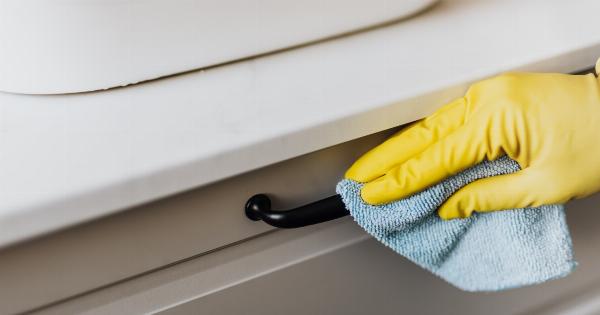Diarrhea is a common problem in babies and it can be caused by a number of factors. When a baby has diarrhea, it means that their bowel movements are looser and more frequent than usual.
This can lead to dehydration and other complications if not treated promptly. In this comprehensive guide, we will explore the causes of diarrhea in babies, the signs and symptoms to watch out for, and steps you can take to ease your baby’s discomfort and prevent further complications.
Causes of Diarrhea in Babies
Diarrhea in babies can be caused by a number of factors including:.
- Infection from bacteria, viruses or parasites
- Reaction to medication or formula
- Teething
- Stress or anxiety
It is important to determine the cause of the diarrhea in order to properly treat it. This may require a visit to the pediatrician who will likely perform some tests to determine the cause and appropriate treatment.
Signs and Symptoms of Diarrhea in Babies
Watch out for the following signs and symptoms of diarrhea in babies:.
- Loose or watery stools
- Increased frequency of bowel movements
- Foul-smelling stools
- Fever
- Bloating or cramping
- Fussiness or crying more than usual
- Loss of appetite or refusal to eat
- Dehydration symptoms such as sunken fontanelle, dry mouth or tongue, decreased urination, and lethargy
It is important to seek medical attention if your baby shows signs of dehydration or if the diarrhea persists for more than a day or two.
Treatment for Diarrhea in Babies
Depending on the cause of the diarrhea, treatment for babies may vary. In general, the following steps can be taken to help ease their discomfort:.
- Ensure your baby gets plenty of fluids to avoid dehydration. This may include offering breast milk, formula, or an oral rehydration solution. Avoid giving your baby too much juice or sports drinks, which can worsen diarrhea.
- Feed your baby a bland diet of starchy foods such as bananas, rice, and toast. Avoid feeding your baby greasy or spicy foods, dairy products or foods with caffeine and artificial sweeteners.
- Keep your baby’s diaper area clean and dry. Apply a barrier cream to help protect their skin from irritation.
- Keep breastfeeding your baby. Breast milk contains antibodies that can help fight off infections causing diarrhea and provide fluids.
- Monitor your baby’s urine output. Ensure that they are passing urine frequently and it is not too dark in color.
- If your baby is on medication, speak to your pediatrician to determine if the medication is causing the diarrhea. They may recommend switching the medication or adjusting the dosage.
Preventing Diarrhea in Babies
There are steps that can be taken to prevent diarrhea in babies including:.
- Washing hands frequently, especially before handling food and after diaper changes
- Cleaning and sanitizing toys and surfaces that your baby comes into contact with regularly
- Keeping your baby away from others who are sick
- Ensuring your baby is up-to-date on their vaccinations
- Avoiding giving your baby foods that may cause diarrhea such as spicy food and honey until they are at least one year old
- Keeping pets clean and preventing them from licking or sharing food with your baby
When to See a Doctor
You should seek medical attention if your baby develops any of the following symptoms:.
- Bloody or black stools
- Severe abdominal pain
- Fever over 100.4 degrees Fahrenheit
- Persistent diarrhea for more than two days
- Signs of dehydration such as dry mouth or tongue, lethargy, and reduced urination
Your pediatrician may recommend further tests such as stool samples or blood tests to determine the cause of the diarrhea. They may also recommend specific treatment for your baby such as antibiotics or probiotics.
Conclusion
Diarrhea is a common problem in babies that can cause discomfort and dehydration if left untreated. It is important to determine the cause of the diarrhea and take steps to relieve your baby’s discomfort and prevent further complications.
In most cases, diarrhea can be treated at home with proper care and attention. However, if your baby shows signs of dehydration, or if the diarrhea persists for more than two days, seek medical attention promptly to prevent further complications.






























